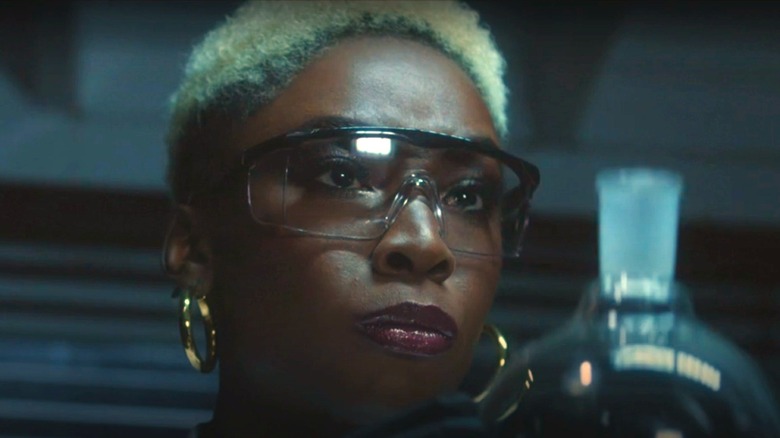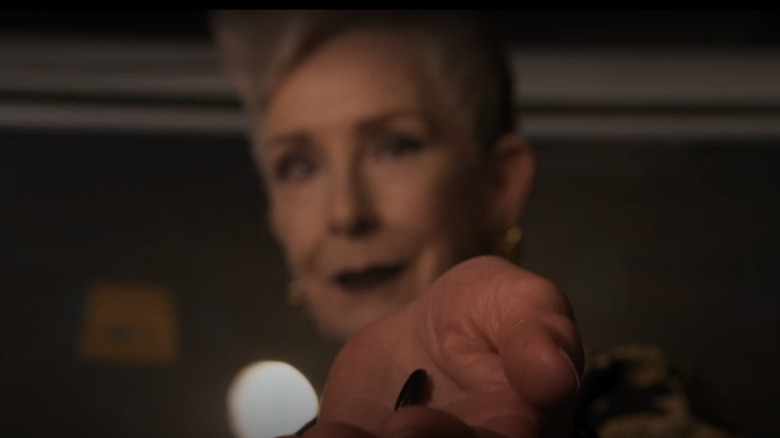The Terrifying Real-Life Inspiration Behind The Muse Drug From AHS: Double Feature
We're four episodes into "American Horror Story: Double Feature," and the pieces are starting to fall into place. We know that the monsters which plague peaceful Provincetown, MA are a creative deviation from the old vampire trope. As far as we can tell, they aren't immortal — they can be killed in any way a normal human being can. And the lucid, high-functioning ones can choose to stop being a vampire (or whatever they are) and go back to living a normal life at any time. But they would have to stop taking a special drug that they literally believe is worth killing for.
The little black capsules in the show (a drug referred to as "muse") help talented individuals go full "Limitless" and unlock a torrential flood of creativity from their minds. But it also gives them an insatiable craving for blood and permanently fries that creative part of their brain once they stop taking it. What's worse is that it doesn't work on everybody — and anyone who takes it who doesn't have any real talent permanently turns into a bloodthirsty zombie.
The funny thing is that aside from the blood-drinking, there actually exists a real-life drug that works in a similar way to how "muse" works in the show. And it's more common than you might think.
Muse is basically a form of methamphetamine
Illegal street meth is a powerful stimulant that shares parallels with what it does to people IRL and what "muse" does to the zombie vampires (zampires? zombires?) in the show. It can cause psychotic behavior, insomnia, and extreme aggression, among other things. And if abused for long enough, the damage becomes permanent.
As for what "muse" does to the people who are talented enough to function on it? Based on the personal experience of Angelica Ross (who plays The Chemist on the show), it more closely mirrors the real-life effects of Adderall (according to The Wrap). She confessed to taking it in college to, funnily enough, pass her organic chemistry class. Ross eventually stopped, but for people with legitimate medical conditions like ADHD, drugs like Adderall can be phenomenally helpful when administered under the guidance of a qualified medical professional.
People with ADHD basically have broken dopamine receptors. If a particular task doesn't give them dopamine (or "pleasure" in layman's terms), their brain has trouble focusing on it and getting it done. But anything that does give them dopamine — like video games, or a creative art project, for example — they can hyperfocus on much more easily and be much more productive than the average person. Coincidently, many of the most creative artists in history either have an ADHD diagnosis or show signs of it. Thankfully, there are no known cases of people on ADHD drugs spontaneously craving human blood. Not yet, anyway.

